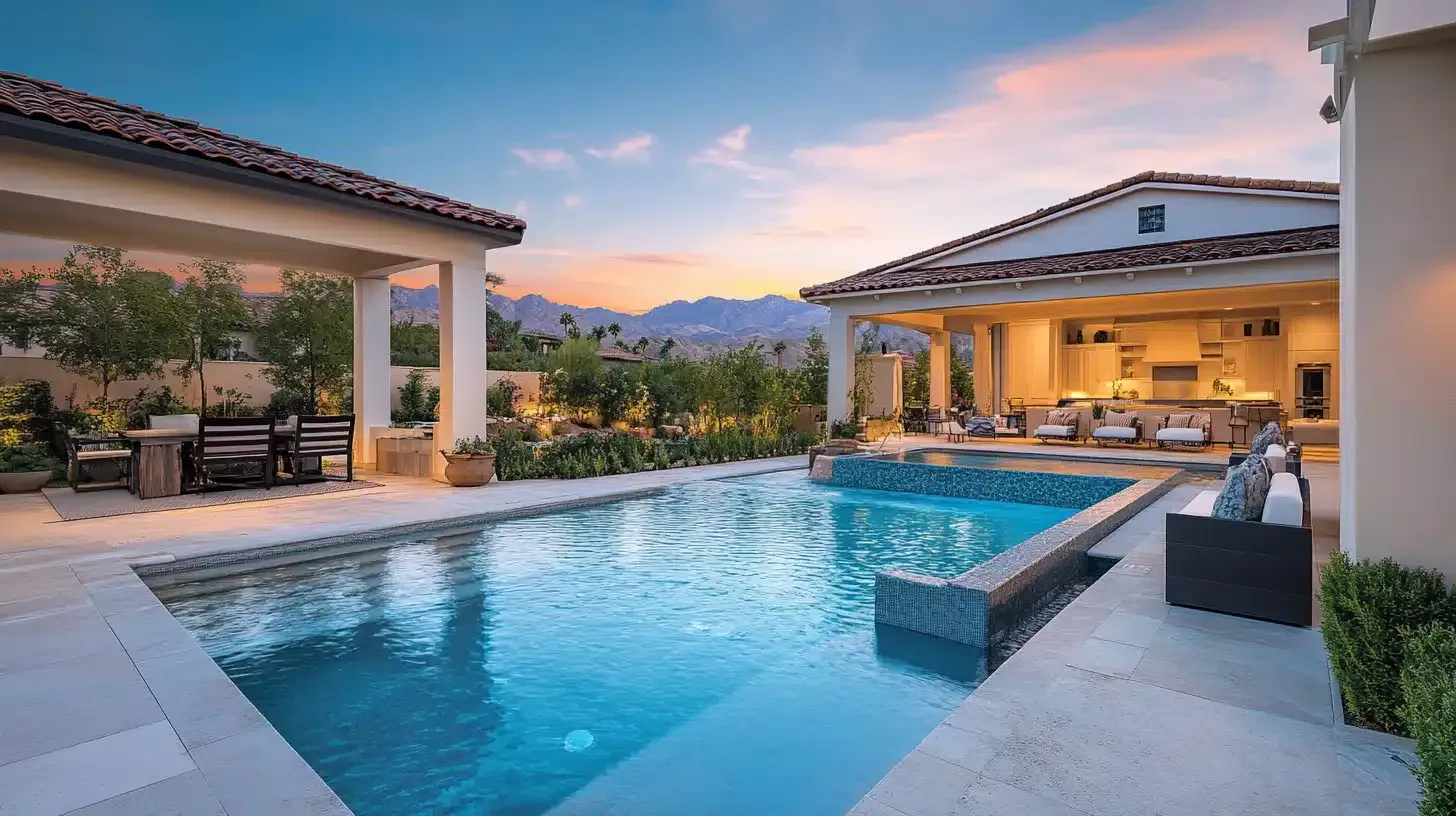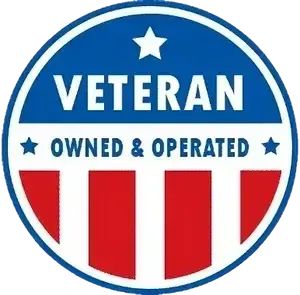How Proper Pool Equipment Installation Can Extend the Life of Your Pool

A well-maintained pool starts with a proper pool equipment installation. Whether you're setting up a new pool or upgrading existing equipment, ensuring that each component is correctly installed can significantly impact longevity and performance. Misaligned pumps, improperly positioned filters, or faulty plumbing can lead to premature wear, costly repairs, and inefficient operation.
We understand the importance of getting every detail right from the start. In this guide, we'll cover essential pool maintenance tips, key installation steps, and common mistakes to avoid. By following these best practices, you can protect your investment and enjoy a clean, efficient, and long-lasting pool.
The Importance of Proper Pool Equipment Installation
Installing pool equipment correctly is not just about functionality—it directly affects water quality, energy efficiency, and the lifespan of your system. A poorly installed pump, for example, can strain the motor and reduce efficiency, while an improperly placed filter may fail to trap debris effectively.
Key benefits of proper pool installation include:
- Extended Equipment Lifespan – Well-installed pumps, filters, and heaters experience less wear and tear.
- Energy Efficiency – Correct placement and sizing reduce energy consumption and operational costs.
- Improved Water Quality – Properly installed filtration systems keep the water cleaner for longer.
- Reduced Maintenance Costs – Fewer breakdowns mean lower repair expenses and less downtime.
By prioritizing pool equipment installation, you can prevent costly mistakes and ensure optimal performance year after year.
Key Steps for Proper Pool Equipment Installation
Every pool setup is different, but some universal steps apply to all pool equipment installation projects. These steps help maximize efficiency, prevent early deterioration, and ensure everything runs smoothly.
1. Choosing the Right Location for Pool Equipment
Placement is crucial when installing pool equipment. The pump, filter, and heater should be positioned on a stable, level surface, preferably on a concrete pad. Keep these key points in mind:
- Place the equipment close to the pool but far enough to minimize noise disturbance.
- Ensure proper drainage to prevent flooding around the equipment.
- Allow adequate airflow for heaters and pumps to function efficiently.
- Maintain easy access for routine maintenance and repairs.
2. Installing the Pool Pump Correctly
The pool pump is the heart of the circulation system. If installed improperly, it can lead to inefficiency and premature failure. Follow these guidelines:
- Position the pump below the water level for optimal suction.
- Ensure the pump is securely fastened to reduce vibrations.
- Use the correct pipe size to minimize resistance and improve water flow.
- Prime the pump before starting to prevent airlocks.
3. Proper Filter Installation for Maximum Efficiency
A filter that isn't installed correctly can lead to cloudy water and increased strain on the pump. Whether using a sand, cartridge, or DE filter, proper setup is essential:
- Ensure the filter is level and securely mounted.
- Check that all connections are tight to prevent leaks.
- Install the filter after the pump in the plumbing line to ensure proper flow.
- Backwash or clean the filter regularly to maintain efficiency.
4. Setting Up the Pool Heater for Optimal Performance
A pool heater extends the swimming season but only if installed correctly. Proper placement and connection are vital:
- Install the heater on a non-combustible surface with good ventilation.
- Ensure it's downstream from the filter in the plumbing system.
- Use high-quality gas or electrical connections to prevent malfunctions.
- Maintain a safe distance from flammable materials or enclosed spaces.
5. Ensuring Proper Plumbing and Electrical Connections
Faulty plumbing or electrical work can lead to major issues in pool equipment installation. To avoid problems:
- Use schedule 40 or 80 PVC pipes for durability.
- Install unions on pipes to simplify future maintenance.
- Check for leaks and air pockets before finalizing connections.
- Ensure all electrical components are grounded properly to avoid hazards.
Common Mistakes to Avoid in Pool Equipment Installation
Even with the best equipment, improper installation can lead to recurring issues. Avoid these common mistakes to ensure a smooth and efficient setup.
1. Incorrect Pump and Filter Sizing
One of the biggest mistakes in proper pool installation is mismatching the pump and filter size. An oversized pump can overpower the filter, reducing efficiency, while an undersized pump may struggle to circulate water properly. Always match your pump’s flow rate to your filter’s capacity.
2. Poor Alignment of Pipes and Valves
Improperly aligned plumbing can cause unnecessary strain on the system. To prevent this:
- Keep pipes straight and avoid excessive bends.
- Use high-quality fittings to prevent leaks.
- Label valves to simplify maintenance.
3. Skipping Priming and Pressure Tests
Before running the system, always:
- Prime the pump to remove air pockets.
- Conduct a pressure test to check for leaks in plumbing connections.
Skipping these steps can lead to poor circulation and potential damage.
Pool Maintenance Tips to Keep Your Equipment in Top Shape
Even with perfect pool equipment installation, regular upkeep is necessary to keep everything running smoothly. Follow these pool maintenance tips to extend the life of your pool system.
1. Clean the Pool Filter Regularly
Filters trap dirt and debris, preventing cloudy water. To maintain efficiency:
- Backwash sand or DE filters every few weeks.
- Clean cartridge filters every few months or as needed.
- Replace filters according to manufacturer recommendations.
2. Monitor Water Chemistry
Balanced water chemistry prevents corrosion and extends equipment lifespan. Keep these levels in check:
- pH: 7.2 – 7.6
- Chlorine: 1 – 3 ppm
- Alkalinity: 80 – 120 ppm
- Calcium Hardness: 200 – 400 ppm
3. Check for Leaks and Strange Noises
Unusual sounds or water leaks can indicate pump or heater issues. If you notice problems:
- Tighten connections and replace worn-out seals.
- Inspect the pump basket for blockages.
- Listen for humming or grinding noises, which could signal motor failure.
4. Winterize Your Pool Equipment
If you live in a cold climate, protect your pool system from freezing temperatures by:
- Draining the pump and filter before winter.
- Adding antifreeze to pipes.
- Covering equipment to prevent ice damage
Why Proper Pool Equipment Installation Matters
A well-installed pool system leads to fewer problems, lower costs, and a longer lifespan for your equipment. Taking the time to follow best practices in proper pool installation can save you thousands in repairs and energy costs over the years.
At Aqua Clear Pool Services, LLC, we specialize in expert pool equipment installation and maintenance to keep your pool in peak condition. Whether you need a new system installed or want professional guidance on pool maintenance tips, our team is here to help.
For more information about our pool repair services, call us at
858-251-4151. You can also email us at
info@aquaclearpoolservices.com for more details.
Frequently Asked Questions
1. How does pool equipment efficiency affect pool water quality?
Proper pool equipment efficiency ensures that water circulates effectively, allowing filters and chlorinators to function at optimal levels. When pumps, filters, and chemical dispensers work together correctly, pool water quality remains balanced, reducing the risk of cloudy water, algae growth, and chemical imbalances.
2. What are the best ways to improve pool equipment efficiency?
To maximize pool equipment efficiency, ensure that pumps and filters are correctly sized for your pool, regularly clean and maintain all components, and invest in energy-efficient models. Professional installation and routine inspections also help keep everything running smoothly, reducing unnecessary pool maintenance efforts.
3. How often should I perform pool maintenance to maintain water quality?
Regular pool maintenance is essential to keeping pool water quality in check. Skimming debris daily, checking chemical levels at least once a week, and backwashing filters as needed all contribute to a cleaner, healthier pool. Additionally, scheduling professional servicing ensures that equipment remains in top condition
4. What are the signs that my pool equipment is not running efficiently?
If your pool water quality starts to decline—showing signs like cloudy water, poor circulation, or frequent algae growth—it may indicate reduced pool equipment efficiency. Other warning signs include unusual noises from the pump, pressure fluctuations, and increased energy consumption. Addressing these issues early can prevent costly repairs and extra pool maintenance.
5. Can upgrading my pool equipment reduce maintenance needs?
Yes! Investing in modern, high-efficiency pumps, filters, and automated chemical dispensers significantly improves pool equipment efficiency, reducing manual pool maintenance tasks. Advanced systems ensure proper filtration, balanced chemicals, and energy savings, helping maintain superior pool water quality with less effort.


